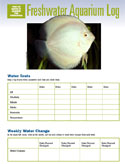As winter approaches, many of us will notice changes on our skin. Central heating, cold temperatures and harsh winds can lead to dry, rough, tight or even cracked skin. Sometimes our skin can feel downright painful when dry skin becomes chronic or severe. Even people with combination or oily skin can occasionally experience dry skin during the winter months.
Seasonal dry skin often affects the whole body. Not only do our faces and lips become drier, but also our elbows, feet, and thighs can become dry as well. Dry skin can exacerbate fine lines and wrinkles making them appear more prominent. All of these areas must be treated properly so that moisture levels can be restored.
Safe and non-toxic natural skin care is your best bet for treating dry winter skin. The following tips can help soothe, nourish and even heal dry skin:
CLEANSERS
Never use detergent cleansers. Most detergent cleansers, particularly foaming cleansers, are usually very alkaline, and therefore drying. Because they can disrupt the acid mantle of your skin, you may lose the ability to fight off bacteria and infection which can lead to breakouts. Use either a natural moisturizing gel based cleanser, or a milky cleanser for the face. When bathing or showering, use a mild all natural soap or body wash, preferably fragrance free. Avoid essential oils which can be irritating for some skin types. Some of these include peppermint, menthol and eucalyptus.
HAND SANITIZERS
Try to avoid alcohol based, anti-bacterial hand sanitizers since they can be very drying. Additionally, most commercial brands contain triclosan, an ingredient used to kill bacteria. Research shows that triclosan may be linked with dioxins which are highly carcinogenic chemicals. Studies have shown that washing hands with mild soap and water, for at least twenty seconds, is just as effective at warding off germs and bacteria as products containing triclosan. When on the go, use naturally based hand sanitizers which do not contain alcohol or triclosan. Some use Thymus Oil as the active ingredient. Some companies claim this ingredient will kill 99.99% of all germs. You can purchase small palm size containers that you can slip into your pocket or handbag. You can find these products in your local health food store.
FACIAL TONERS
Avoid facial toners with alcohol. Toners with alcohol, such as SD Alcohol 40, can be very drying. Look for labels that say "alcohol-free." Plenty of high quality toners also include moisturizing ingredients such as aloe vera and apple extract.
NATURAL OILS
Opt for natural oils in your skincare. Avoid petro-chemicals such as mineral oil, petroleum, lanolin, and propylene glycol. Not only are these ingredients potentially toxic, but they can prevent your skin from breathing. Petroleum based products leave an occlusive barrier on the skin which may help it feel better temporarily. However, this barrier can hinder your body's ability to release toxins through the skin. And because petroleum based products form a film on the surface on the skin, they may clog pores in some people. This can lead to breakouts or blemishes.
Choose natural oils which are not only hydrating, but that easily penetrate. Some good choices include almond oil, avocado, macadamia, rosehip oil, evening primrose oil, extra virgin olive oil and shea butter (a nut butter which is extremely hydrating). Oily or combination skin may opt for jojoba oil, sesame seed oil, and apricot kernel oil as well as some of the above. Listen to your skin to determine what best suits your needs. Many natural oils can be found in high quality face or skin creams. Look for ones that easily absorb. Hydrating creams should not feel greasy. Most natural oils are reported to be non-comedogenic (low risk for breakouts). However, some natural oils may be comedogenic. If you are prone to break outs, you may want to avoid wheat germ oil, coconut oil, cocoa butter, and soybean oil. For oily or combination skin types, these may be better choices for the body, rather than the face. Always moisturize when your skin is slightly damp.
LIP BALMS FOR DRY LIPS
Avoid commercial petroleum based lip balms for all of the reasons stated above. They may feel as if they are hydrating your lips, but many find they have to apply them frequently throughout the day. Some have reported that these products actually make their lips feel drier with excessive use. Most of these products contain heavy waxes, petroleum, mineral oil, and lanolin. Stay away from added ingredients intended to impart a cooling, refreshing feeling, such as peppermint or menthol. These may have the opposite effect by causing burning and irritation. Look for all natural lip balms that steer clear of these ingredients. Many contain nourishing oils which can help hydrate and soothe. They are available at any health food store. Also, try to avoid licking your lips as saliva can be drying.
EXFOLIATE
Exfoliating with gentle, yet effective products can help slough off dead skin cells which can help keep skin smooth and moist. Gentle products used for manual exfoliation can be helpful. Use ingredients such as jojoba beads or finely ground bamboo grains. You could even make a paste using honey and sugar. This can be used to exfoliate your face as well as your lips. Avoid larger, uneven particles which may irritate skin. A chemical exfoliator, such as Alpha Hydroxy Acid (e.g. glycolic or lactic acid) can be helpful as well. Products with very high percentages and low pH levels should be avoided; they may be too irritating and drying for facial skin. A very gentle loofah sponge can also be effective for exfoliating the body and releasing toxins (avoid the face area) while in the shower or bath.
FISH OIL
In addition to skin care, there are other things you can implement to alleviate or prevent dry winter skin. For example, taking generous amounts of fish oil may help keep skin soft and moist. Fish oils are loaded with long chain omega 3 fatty acids which can benefit your skin. When looking at the ingredient label, pay attention to the total amount of EPA and DHA . These are the only two ingredients that really matter.
Fish oils have anti-inflammatory benefits which may help ease chronic pain (such as osteoarthritis), and may help prevent heart disease. Recommended amounts range from 1-6 grams, depending upon your health concerns. If you are not sure how much too take, discuss this with your physician. Look for high quality fish oil supplements which have been tested to be free of heavy metals, particularly mercury. Try getting enough fatty acids in your diet if you find swallowing pills difficult. Salmon is a good choice. If you are a vegetarian, you can take Flax Seed oil, however it only contains ALA, a short chain omega 3. In order for it to be beneficial, your body most convert the ALA into EPA/DHA.
WHEN TO CONSULT A PHYSICIAN
Always seek the advice of your physician if you develop a dry skin condition which becomes excessively painful or uncomfortable. For example, you may need medication for conditions such as atopic dermatitis or eczema. Eczema can be caused by harsh chemicals, or may be the result of an internal imbalance. Evening Primrose Oil has been shown to improve eczema in some individuals.
For some, seasonal dry skin is an inevitable part of life. However,implementing the above tips may help keep your skin as soft and hydrated as possible.

 Marine Nano Tank Problems
Marine Nano Tank Problems
 Cleaner Wrasse
Cleaner Wrasse
 Aquarium maintenance logs for freshwater, saltwater and reefkeeping aquarists
Thank you for signing up for the FishChannel newsletter, the
Aquarium maintenance logs for freshwater, saltwater and reefkeeping aquarists
Thank you for signing up for the FishChannel newsletter, the
 Red Worms
Q. I’ve seen advertisements for red worms as a food for fish
Red Worms
Q. I’ve seen advertisements for red worms as a food for fish
 Invasive Aquatic Species
Last column, we discussed invasive species and the potentia
Invasive Aquatic Species
Last column, we discussed invasive species and the potentia